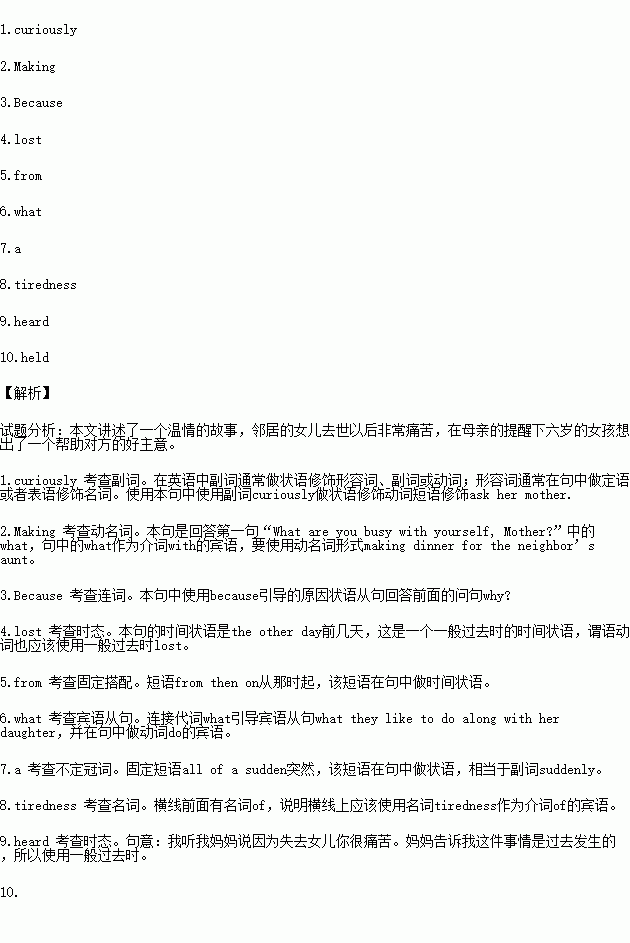题目内容
阅读下面材料,在空白处填入适当的内容(1个单词)或括号内单词的正确形式。
“What are you busy with yourself, Mother?” The girl of less than six years old asked her mother _1. (curiosity). “ __ 2._ (make) dinner for the neighbor’s aunt.”
“ Why?” “ 3. the other day the aunt 4. (lose) her daughter and is so sad now. We must take good care of her these days.”“ Why need our care?” “ Because _ 5. then on the aunt can’t do 6. they like to along with her daughter. She is very pitiful. In her distress, making dinners and doing chores are also becoming so difficult. My dear, can you help Mother hit an idea to help the aunt in other ways?” At her mother’s proposal, the girl thought for a long while. All of 7. sudden, she went to the neighbor and knocked at the door.
The neighbor with a look of 8. (tired) opened the door. “What can I do for you?” asked the neighbor. “I 9. (hear) my mother say you’re very distressed for losing your daughter...” The girl timidly handed the band-aid tightly 10. (hold) in her hand to the neighbor.
The neighbor suddenly choked with sobs, her tears gushing from her eyes. She hugged the girl and said, “ Thank you. This band-aid will cure my wound.”
 阅读快车系列答案
阅读快车系列答案
